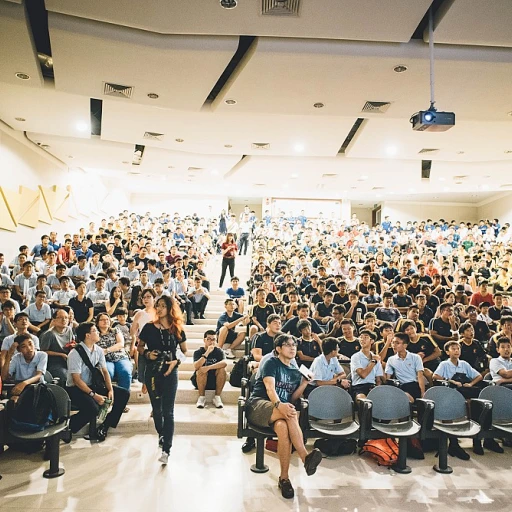
Understanding the Japanese Market
Understanding the Cultural Preferences
Japan's market presents a unique challenge and opportunity for global companies like Coca-Cola. To succeed, it’s essential to uncover and tailor strategies that align with Japanese consumer preferences. The market behavior in Japan is different compared to Western countries; here, tradition meets innovation, influencing how a brand like Coca-Cola approaches its marketing strategy.
Japanese consumers have a distinctive preference for a variety of drinks. While classic cola drinks such as Coke are popular, the demand for other beverages such as green tea, bottled water, and products like Georgia coffee are equally favored. This indicates a diverse taste landscape that the company must navigate, emphasizing the importance of their product customization.
The role of digital marketing and vending machines reflects modern consumer habits, offering convenience and an extensive range of Coca-Cola products. Interestingly, beverage vending machines are a ubiquitous sight across Japan, making them integral to the distribution strategy.
By exploring culturally relevant trends and preferences, Coca-Cola can enhance its branding efforts, thus maximizing sales and consumer engagement. To achieve this, collaboration with local bottling partners is crucial to ensure a seamless market integration and alignment with local consumer expectations.
To delve deeper into these unique opportunities in the Japanese market, businesses might consider strategies similar to maximizing business efficiency with tailored solutions to enhance their market presence and resonance with local consumers.
Product Customization and Innovation
Tailored Beverage Innovations
In a market as diverse as Japan, Coca-Cola has adeptly customized its products to cater to the unique tastes and preferences of Japanese consumers. Recognizing that green tea and coffee hold significant cultural and consumption value, Coca-Cola strategically launched products like Georgia Coffee and Bottlers Japan exclusive offerings. These innovations have contributed to the company's strong foothold in the Japanese market by aligning their products with local preferences.
Limited Editions and Flavor Variations
The introduction of seasonal and limited edition drinks is another strategic move that Coca-Cola employs in Japan. This marketing strategy appeals to the Japanese love of novelty and seasonal changes, which in turn, boosts sales and keeps the brand relevant and exciting to consumers. By continuously developing new flavors and appealing packaging, Coca-Cola ensures that it stands out among the plethora of soft drinks available to Japanese consumers through its extensive cola system.
Vending Machines and Regional Specialties
The prevalence of vending machines in Japan offers Coca-Cola a unique opportunity to offer region-specific products, making use of the digital beverage vending sector. By partnering with local cola bottlers and leveraging fast food collaborations, Coca-Cola can distribute these specialty drinks more widely. This not only enhances the brand's appeal but also provides a tailor-made experience for local consumers, thereby solidifying the brand's presence and increasing overall sales.
To delve deeper into effective go-to-market strategies that can be applied across various markets, consider exploring more detailed insights and approaches.
Leveraging Technology in Marketing
Harnessing Digital Innovation to Boost Engagement
Coca-Cola has long been synonymous with cutting-edge marketing, and Japan offers a unique opportunity to leverage digital tools to connect more effectively with consumers. The company’s approach in this market encompasses a variety of strategies that utilize technology to enhance brand visibility and engage with their audience in novel ways. In Japan, vending machines serve as a pivotal element of Coca-Cola's digital strategy. With approximately five million vending machines scattered across the country, they provide an ideal platform for the company to reach consumers directly. Coca-Cola has transformed these traditional machines into interactive touchpoints by integrating technological advancements, such as QR codes and cashless payment options, which cater to the tech-savvy Japanese populace. This not only modernizes the purchasing experience for drinks like Coke and Georgia Coffee but also facilitates the gathering of real-time consumer data. Additionally, Coca-Cola utilizes social media and digital campaigns to strengthen its brand presence. By closely examining consumer behaviors and preferences through digital analytics—an approach often likened to the role of SIOP in modern supply chain—the company can craft personalized marketing content that resonates with the audience’s tastes. This level of customization is crucial in a market where preferences for beverages like cola, green tea, and other soft drinks frequently evolve. The widespread adoption of mobile apps also plays a crucial role. By deploying apps that offer exclusive rewards, discounts, and promotions, Coca-Cola effectively fosters loyalty among Japanese consumers. This digital strategy empowers consumers to explore the brand’s full range of products and engage with promotional activities, thereby enhancing brand interaction and driving sales growth. In summary, Coca-Cola's strategy in Japan underscores the significance of digital tools in refining marketing practices. By turning everyday experiences like using vending machines into interactive brand encounters and tapping into the digital realm, Coca-Cola is effectively cementing its dominant presence in the competitive Japanese beverage market.Collaborations and Partnerships
Strategic Partnerships and Collaborations
Coca-Cola in Japan has capitalized on strategic partnerships and collaborations as a critical part of their marketing strategy. One of the company's significant collaborations is with fast food chains, which has helped increase their market presence. By aligning their brand with popular fast food outlets, Coca-Cola ensures that their products remain a preferred choice for consumers dining out. This symbiosis not only boosts sales but also strengthens brand loyalty among regular patrons of these chains.
Furthermore, as the digital shift reshapes consumer interactions, Coca-Cola's collaboration with vending machine operators has proven advantageous. The smart vending machines in Japan are an exemplar of combining tradition with technological innovation. These machines, which often harness digital information to customize consumer experience, are spread across several high-traffic locations, thus enhancing the people’s accessibility to their favorite beverages.
Leveraging technology, many of these vending machines incorporate touch-screen interfaces, which provide an engaging experience and useful information about the various drink options. Coca-Cola beverages, including the popular Georgia Coffee and green tea products from their extensive catalog, are easily accessible thanks to this network of vending machines. Such initiatives emphasize the company’s effort to innovate within the established cola system as they tap into the beverage vending opportunity.
The partnership narrative extends further to align with bottling partners and other stakeholders. Coca-Cola Bottlers Japan plays an integral role, ensuring that the vast supply chain that powers the availability of their products functions seamlessly. These relationships are pivotal to navigating the complexities of the Japanese market, ensuring that Coca-Cola maintains its stronghold while also exploring new avenues for growth.
Advertising and Branding Tactics
Crafting a Distinct Brand Image
In Japan, Coca-Cola has mastered the art of creating a distinct brand image that resonates with local consumers. The company leverages its global brand recognition while tailoring its advertising to reflect Japanese culture and preferences. This dual approach helps Coca-Cola maintain its status as a beloved beverage brand in the Japanese market.
Localized Advertising Campaigns
Coca-Cola's advertising campaigns in Japan often incorporate elements of Japanese culture, such as traditional festivals or popular local celebrities, to create a connection with consumers. By doing so, the brand ensures that its marketing strategy feels both familiar and appealing to the Japanese audience. This approach not only boosts sales but also strengthens brand loyalty.
Utilizing Digital Platforms
The company effectively uses digital platforms to engage with its audience. Social media campaigns and interactive content allow Coca-Cola to reach a wider audience and create a more personalized experience for consumers. This digital engagement complements their traditional advertising efforts, ensuring a comprehensive marketing strategy that covers all bases.
Innovative Vending Machine Marketing
Vending machines play a crucial role in Coca-Cola's marketing strategy in Japan. The company has introduced high-tech vending machines that offer personalized recommendations and interactive experiences. These machines not only dispense drinks but also serve as a marketing tool that enhances consumer engagement and drives sales.
Strategic Partnerships
Collaborations with local businesses and fast food chains further amplify Coca-Cola's reach in Japan. By partnering with popular brands, Coca-Cola ensures its products are readily available and visible to consumers, reinforcing its presence in the market. These partnerships are a testament to the company's adaptability and understanding of the Japanese market dynamics.













